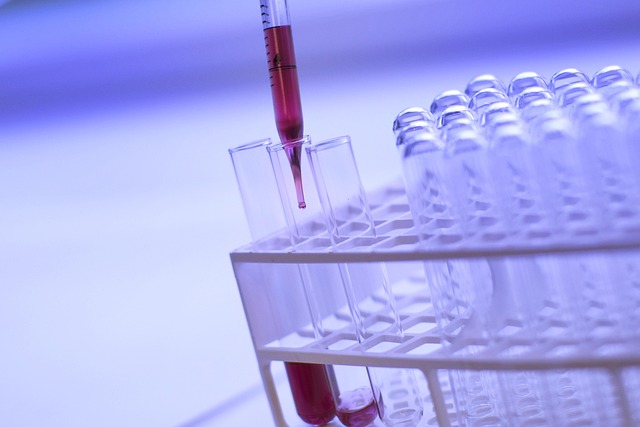Low testosterone (low T) is common in men over 40, impacting health and daily life. Professional testosterone screening through morning blood tests identifies low T as a root cause of symptoms like reduced muscle mass, fatigue, decreased libido, and mood changes. Accurate diagnosis enables exploration of natural remedies, including balanced diet, HIIT exercise, stress management, and addressing underlying conditions, while considering rare side effects of testosterone therapy. Consulting a healthcare professional is recommended for proper guidance.
“Men over 40 experiencing low testosterone levels face unique challenges. As we age, our hormone production naturally declines, impacting energy, libido, and overall health. This article serves as a comprehensive guide for understanding and addressing low testosterone (low T) in this demographic. We delve into the symptoms, causes, and potential solutions, emphasizing natural remedies and lifestyle adjustments. Additionally, we explore the importance of professional testosterone screening, providing insights into what to expect during these evaluations.”
- Understanding Low Testosterone in Men Over 40
- Symptoms and Causes of Testosterone Deficiency
- Professional Testosterone Screening: What to Expect
- Natural Remedies for Boosting Testosterone Levels
- Lifestyle Changes for Optimal Testosterone Production
Understanding Low Testosterone in Men Over 40

Low testosterone (low T) is a common concern for men aged 40 and above, marking a natural part of the aging process. This hormonal shift can significantly impact overall health and daily functioning. Understanding low testosterone in this demographic is crucial, prompting many to seek professional guidance through professional testosterone screening.
A simple blood test, often performed first thing in the morning, can provide valuable insights into an individual’s hormone levels, known as male hormone testing kits. This test offers a comprehensive look at one’s testosterone profile, revealing its free and total concentrations. The results can help identify if low T is the root cause of various symptoms, including reduced muscle mass, fatigue, decreased libido, and changes in mood or energy levels.
Symptoms and Causes of Testosterone Deficiency

Low testosterone, often referred to as hypogonadism, is a common concern for men aged 40 and above. Recognizing the symptoms early on is crucial for prompt addressing. Men may experience a variety of signs indicating a potential deficiency, including decreased sexual function (such as low libido and erectile dysfunction), muscle mass loss, fatigue, bone density reduction, and changes in mood or energy levels. These symptoms can significantly impact overall quality of life.
The causes of testosterone deficiency are multifaceted. Age-related decline is a natural process, but certain factors can accelerate this decrease. Medical conditions like Klinefelter syndrome, testicular injury, or hormonal disorders can lead to low testosterone. Additionally, lifestyle choices such as excessive alcohol consumption, obesity, and physical inactivity are linked to reduced hormone levels. Professional testosterone screening through a legal and reliable testing process, including a simple blood test, is essential for accurate diagnosis. Getting tested for testosterone legally opens doors to exploring suitable testosterone replacement therapy options tailored to individual needs.
Professional Testosterone Screening: What to Expect

Professional Testosterone Screening: Unveiling Your Hormonal Health
When considering natural remedies for low testosterone, undergoing a professional testosterone screening is a crucial step. This process involves a comprehensive evaluation of your hormonal levels and overall health. During the screening, healthcare providers will typically start by assessing your medical history and discussing any symptoms you may be experiencing, such as decreased energy, muscle mass loss, or sexual dysfunction—all potential indicators of low testosterone (low T).
The actual testing usually involves taking a blood sample to measure your testosterone levels. This is often done in the morning, as it provides a more accurate representation of your body’s natural rhythm. In addition to testosterone, the test may also check for other hormones, such as estrogen and luteinizing hormone (LH), to gain a complete picture of your hormonal balance. Understanding your testosterone levels and fertility can empower you to make informed decisions about your health, especially when considering potential side effects associated with excessive testosterone—a condition that, while rare, can lead to issues like acne, facial hair growth, and cardiovascular problems.
Natural Remedies for Boosting Testosterone Levels

For many men over 40 experiencing low testosterone levels, natural remedies can be an effective way to boost their hormones and improve overall health. Before considering any treatment, it’s crucial to undergo professional testosterone screening to understand your specific situation. This initial step involves a simple blood test that measures your testosterone levels, helping healthcare professionals identify the root cause of low testosterone. Once diagnosed, various natural approaches can be explored.
One popular method is adopting a balanced diet rich in zinc, vitamin D, and healthy fats. These nutrients play a vital role in testosterone production. Additionally, regular exercise, particularly high-intensity interval training (HIIT), has been shown to increase testosterone levels naturally. Managing stress through practices like meditation or yoga can also have a positive impact, as chronic stress is known to negatively affect hormone production. Understanding testosterone therapy costs and exploring these natural alternatives can empower men to take control of their health and embrace healthy aging with confidence.
Lifestyle Changes for Optimal Testosterone Production

Maintaining a healthy lifestyle is crucial for optimal testosterone production, especially as men age over 40. This involves adopting a balanced diet rich in zinc and vitamin D, which are essential for testosterone synthesis. Regular exercise, particularly high-intensity interval training (HIIT), has been shown to boost testosterone levels naturally. Managing stress through techniques like meditation or yoga is also key, as chronic stress can negatively impact hormone production. Adequate sleep is another critical factor; prioritizing a consistent sleep schedule helps regulate hormonal balance.
Considering the potential symptoms of low testosterone and its effects on overall health, men experiencing concerns should discuss these issues with a healthcare professional. This conversation might include recommending a comprehensive professional testosterone screening to accurately diagnose any deficiencies or imbalances. If low testosterone is confirmed, understanding its low testosterone causes and treatments can guide individuals towards making informed decisions for their well-being. Additionally, as certain conditions like hypothyroidism can contribute to low testosterone, a thyroid test might be advised as part of a thorough assessment.
Men over 40 experiencing low testosterone levels have several options to consider. While professional testosterone screening is a crucial step, adopting natural remedies and lifestyle changes can significantly boost testosterone production. Incorporating these strategies into your routine may help alleviate symptoms of deficiency and improve overall well-being. Remember, consulting with healthcare professionals is essential for personalized guidance and safe, effective treatment.
